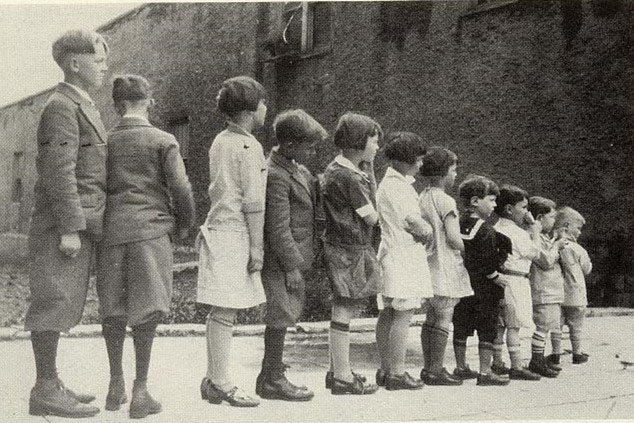All Work
Early Childhood Education
Does Pre-K Work? A Look at the Research
Is the current research base sufficient to guide new and expanding early childhood initiatives? Katharine Stevens hosts a panel of four prominent scholars to discuss the state of early childhood research. While some argue that current knowledge provides adequate support for growing pre-K programs, others suggest that stronger evidence is needed.
There’s Nothing Magical About Pre-K
Treating pre-kindergarten like a silver bullet isn’t helping the disadvantaged kids who need it most.
The Promise of Pay for Success
Pay for Success can’t solve every social challenge alone. But it holds great promise as a bipartisan approach to build more effective, efficient and responsive government programs.
Pay for Success: A New Approach to Funding Social Welfare Programs
Four national experts explain the Pay for Success model, an innovative new approach to public financing that improves social programs’ effectiveness and advances evidence-based policymaking.
Pay for Preschool Success
Recent critiques of Utah’s pioneering Pay for Success project in fact underscore a key strength of the Pay for Success approach: bringing rigor and transparency to public sector spending, which usually has neither.
‘Set Their Feet Upon Surer Paths’
An 80-year legacy of federal policymaking in early childhood has left us with a hodgepodge of fragmented funding streams, disconnected from each other and from a clear, coherent purpose.
Renewing Childhood’s Promise: The History and Future of Federal Early Care and Education Policy
Today’s federal early care and education policies are fragmented, inefficient, and unnecessarily complex. Federal policymaking is driven by coping with what exists rather than by what we are trying to accomplish: giving America’s least-advantaged children a fair chance at a happy, productive life.
Preschool for All is No Panacea, California
Instead of launching a costly and unproven program for 4-year-olds, California should invest in helping vulnerable, young children in the home and in child care.
Schools Aren't Everything
Despite decades of effort and trillions of dollars, neither preschool nor other reforms have made a difference by the time it really matters: when children finish school.
Pre-K Isn’t Enough
While a year of pre-K can be helpful for many children, too often focus gets diverted from improving early learning for disadvantaged young children to promoting universal pre-K for all four-year-olds.
A Look Back at the Social Security Act of 1935 and Its Forgotten Focus on Needy Children
Eighty years ago today, Franklin D. Roosevelt signed the 37-page Social Security Act (SSA) of 1935 into law, enacting the most fundamental change in social policy in America’s history. But the program's original focus on children’s human flourishing has largely been lost.
Pay for Success Doesn’t Mean Wall Street Is Recruiting in Pre-K
The effort Goldman Sachs is leading is not to recruit future stockbrokers in preschool. The effort they’re leading is to make preschool work well enough that solid results for children have staying power down the line.
Pay For What Works
An innovative public financing approach known as Pay For Success provides a way to break the cycle of ineffective government spending on social programs.
‘Path Dependency’ in Early Childhood Policy: What It Is and Why It Matters
Our current debates over early education are confined to well-worn, counterproductive ruts in the early childhood policy road.
Advancing Opportunity Through Early Learning
Building new bureaucracies or tacking preschool programs onto failing public schools are not the correct strategies for moving forward. Instead, we should target funding at the most vulnerable children, strengthen existing federal programs rather than create new bureaucracies, and promote research and innovation to raise the bar for action.
Too Little, Too Late
Minnesota’s fascinating preschool battle drags on, highlighting crucial questions for the expansion of early education across the country.
The Science of Early Learning: A Foundation for Expanding Opportunity
Jack P. Shonkoff, director of the Center of the Developing Child at Harvard University joins Robert Doar and Katharine Stevens to discuss the science of early learning and how it can be harnessed to improve opportunity for disadvantaged children.
The Next Front in the Preschool Fight
Minnesota’s unusual debate highlights three crucial questions that the growing early care and education sector is increasingly going to face as more initiatives get off the ground across the country.
Early-Education Teachers Need Better Training
Early education is starting with a clean and unencumbered slate. This is the right time to make crucial decisions about how teachers should be prepared to educate very young children.
Dos and Don’ts for Early Childhood Education
State leaders have an extraordinary opportunity to build effective early childhood systems right, from the ground up. Here is what they should do — and what they shouldn't — to accomplish that.





















